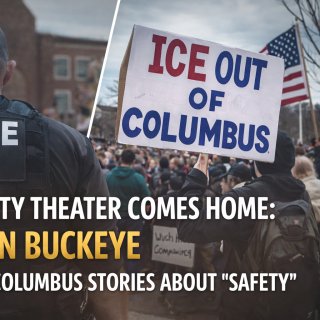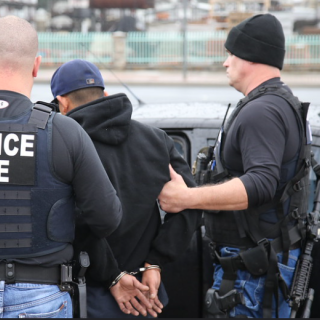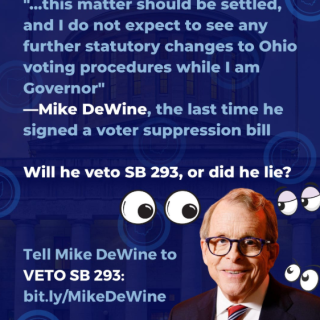Advertisement
The new three-year labor deal between the City of Columbus and Fraternal Order of Police (FOP) Cap City Lodge #9 shows once again our local law enforcement union is dictating its demands to the community instead of the community demanding the Columbus Division of Police become a more professional law enforcement agency so we don’t repeat the summer of 2020.
FOP Cap City Lodge #9 has repeatedly said the Division of Police is one of the best trained police agencies in the nation with phenomenal officers, as union President Keith Ferrel professed during a recent press conference.
The Free Press agrees the job of police can be dangerous and takes its toll on officers. Drug and gun epidemics continue to marginalize and terrorize areas of the community. The Free Press family has several members who work with at-risk youth and often interact with Columbus police, and their experiences have been positive for the most part.
But at the same time, union members of Cap City Lodge #9 shot and killed Andre Hill, Casey Goodson Jr., and others, without attempting to de-escalate first. And while some protesters may have crossed a line, the summer of 2020 further exposed the Division’s unprofessional behavior. What’s more, fellow officers treat other officers in ways that would never happen in your workplace and without serious consequences.
The surge in local violence certainly had an influence on the negotiations. Ferrel opened his press conference saying the contract is not going to end the spike. “We’ve seen a lot of rhetoric over the last year and half from elected officials…We (were) concerned what that would do to the crime in the city. I don’t think anybody disputes we are in a significant crime increase around the city.”
One question is, what truly caused the rise in crime, and is the pandemic mostly to blame?
There’s a myriad of answers, but according to CityRating.com, since 1999, both violent crime and property crime in Columbus has trended down, and that “based on this trend, the crime rate in Columbus for 2021 is expected to be lower than in 2019.” Columbus police officers last year told the Free Press the crime surge may partially be a result of the Division’s “Covid response” – in essence, officers on the street were less proactive.
What is clear is who the victims are. Even Mayor Ginther has suggested the crime is mostly gang and drug related, and many shootings are the result of gang crews in a never-ending revenge cycle. The deluge of $10 bags of “fenty” mixed with an uncontrollable arsenal of legal weapons flowing through the community has the police-state apologists at Channel 6 (Sinclair Broadcasting) in a feeding frenzy.
Nevertheless, some areas of the community are seriously alarmed, Morgan Harper of Columbus Stand Up! told the Free Press this late last summer. All this fear probably convinced City government to give the FOP what they wanted: a 14 percent raise over the next three years and no subpoena power for the Civilian Review Board (CRB) when it comes to police shootings and other criminal investigations.
Earlier this week City Council sounded like a rehearsed broken record when they approved the contract. Councilmembers kept repeating the new contract is “far from perfect.”
Nothing new there, say activists.
“They [Cap City Lodge #9] are similar to the mafia in the 1930s,” says De-scalate Ohio’s Cynthia Brown, whose nephew was approached by Columbus police officers for no good reason and shot to death. “That may sound unfair, but you know what is also unfair? How the FOP protects bad apples, condoning and turning a blind eye.”
Progressive activist Joe Motil asked, “Who really came out ahead on this deal? The FOP of course.”
Motil raised a question about the contract’s new Retirement Incentive Program, which is offering $200,000 buyouts to officers with 25 years of service.
“By Ginther’s reasoning, the $200,000 buyout – along with their pension – for 100 officers with 25 years of service will help weed out cops who do not want to commit themselves to future police reform measures,” said Motil. “So this type of thinking would lead one to believe that it is mostly those officers with 25 years of service or more are the ones that need to be weeded out. So what do we do about weeding out the dozens of other rogue cops that makeup the other 1,800 officers? Maybe Ginther can get the Haslam’s to give out season passes to Crew games and Mediterranean cruises for those officers that sign an agreement that promises they will abide to the Chief’s reform policies.”
Some have attempted to impose a measure of community control over Cap City Lodge #9, such as attorney Fred Gittes, who is representing the plaintiffs in the protester trial Alsaada v. City of Columbus.
Gittes and other attorneys convinced federal Judge Algenon Marbley to issue an injunction to the Columbus police, ordering them to stop using tear gas, pepper spray and rubber bullets against nonviolent protesters. But then Cap City Lodge #9 did something unexpected and brazen, believes Gittes. They forced themselves into the lawsuit through a Motion to Intervene, which now allows them to challenge that injunction and any future orders given by Judge Marbley.
“They’re clearly trying to exert as much control as they can over the policies and practices of the Division,” said Gittes to the Free Press. “This shows you just how powerful they think they should be.”
De-Escalate Ohio’s Cynthia Brown says, “Columbus, Ohio is number one in the nation for killing black men, only recently has one been indicted.”
She wasn’t able to go through the entire contract, but from what she has read, “it’s pretty superficial so far.”
Brown has a long list of what should be in the contract: “Yearly mandatory de-escalation training. An associate’s degree or higher. Drug testing. Mental evaluation. Diversity. You must live in the county you are employed. Most importantly, purchase mandatory professional insurance. All of this will build trust with the community,” she said. “The bottom line, using empathy moving forward, something law enforcement should adopt in training. Learn how to respect the lives of black and brown men and women. My five-year-old grandson Bryan says when he grows up he wants to be a police officer.”



